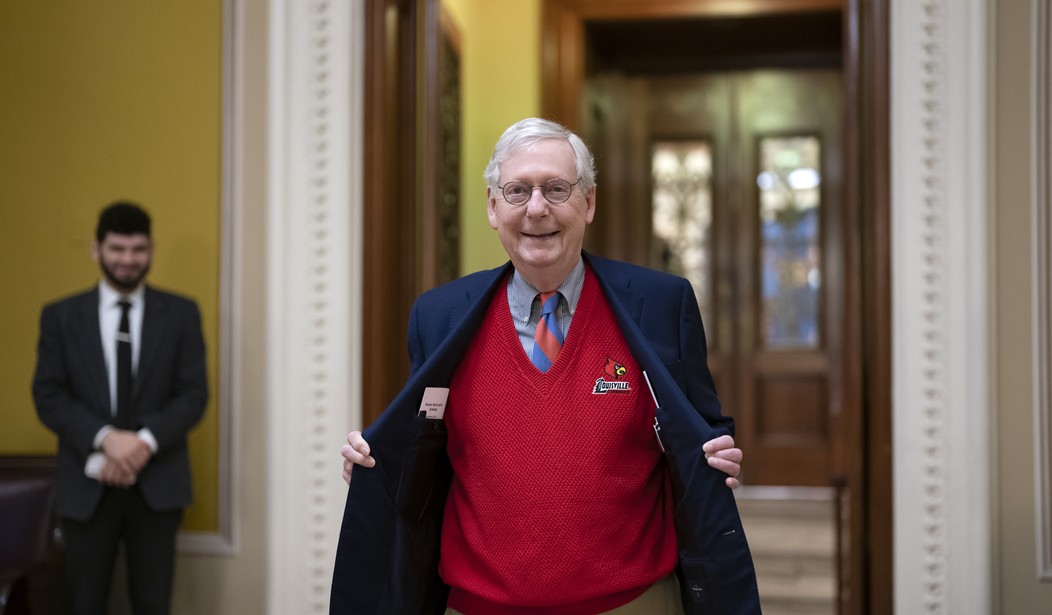The absurdity of massive spending bills packed full of unrelated line items has never been more evident than it was with the recent spending proposal offered by the Biden administration, which rolled Ukraine, Israel, Taiwan, and border funding all into one.
Why? That’s the obvious question. What is the purpose of bundling spending packages for Israel with the border?
Via CNBC:
The Biden administration on Friday requested more than $105 billion from Congress to support the security needs of Ukraine, Israel, Taiwan and the U.S. southern border.
President Joe Biden’s biggest request in the package is more than $61 billion for Ukraine. Since Russia’s full-scale invasion of Ukraine in February 2022, the U.S. has unleashed an arsenal worth $44 billion in security assistance, according to figures provided by the State Department.
He’s also calling for an additional $14.3 billion for Israel, another $2 billion for Taiwan and Indo-Pacific security, and a little over $9 billion for humanitarian assistance…
Additionally, the White House is seeking $6.4 billion for border operations, pushing back against Republicans who have criticized it for not doing enough to contend with migration from Latin America. The request also includes about $1.2 billion for efforts aimed at countering fentanyl, which has driven a wave of deadly overdoses in the United States.
There are many reasons the special interests that run the American state prefer “omnibus” bills to single-issue spending bills:
- Limits on debate. The more projects that can be rolled into a single bill, the less debate is possible on each of them. Given that many omnibus spending packages are thousands of pages in length and the time allotted to review and debate them is extremely limited, the vast majority of line items go completely unaddressed by lawmakers. Most Congress creatures, in fact, have no idea what they are voting on and rely on the guidance of leadership to make their voting choices. Public knowledge of what the government spends its money on is extremely poor. There are many causes, including the sorry state of American education, but one is the lack of discussion of specific funding issues.
- Pork barrel spending. Members of Congress routinely slip what is called “pork barrel” cash into spending bills that will funnel money for various projects into their districts. This is done not for the benefit of the nation but for their own political viability within their districts.
- Rhetorical cover. Congress creatures will often hide behind bad votes that are unpopular with their constituents by talking about other elements of whatever spending bill are popular. So their defense of reckless spending goes something like, “Yes, I gave away another few billion dollars in subsidies to corporations that don’t need them, but look what I got for you in the way of a new bridge!”
Related: Congress Quietly Passes Pay Raise for Itself
The use of riders and omnibus bills decreases government transparency and allows Congress to conceal its manipulation of the system. Omnibus bills are excessively long to read and cover too many subjects to be truly understood in totality. Not only does this mean that Congress spends money unnecessarily, but it also means that other, more controversial provisions of a bill can pass Congress buried deep within the countless pages of confusing legislation… “A bill that’s so long that nobody can read it is, naturally, pretty likely to escape scrutiny. With thousands of pages and hundreds or thousands of provisions in the bill, what’s the chance that any particular provision will be noticed or criticized?” Similarly, riders hitched to popular legislation are shielded from scrutiny due to large support for the overall bill.
The simplest solution to this dilemma would be to pass a Constitutional amendment requiring votes on single spending issues. The reason we don’t have one yet, as is the case with most common-sense legislation, is that the donor class absolutely despises the idea of their little gravy-train mechanism getting taken away.










